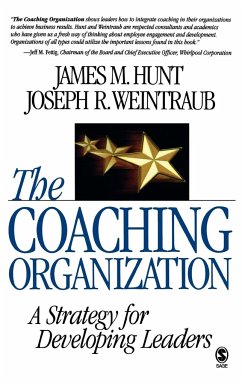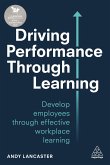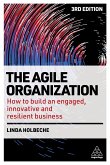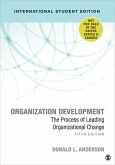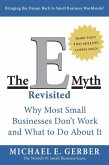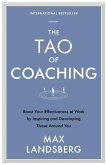- Gebundenes Buch
- Merkliste
- Auf die Merkliste
- Bewerten Bewerten
- Teilen
- Produkt teilen
- Produkterinnerung
- Produkterinnerung
Helps promote coaching and leadership capabilities in organizations. This book helps define the goals of coaching in order to develop leadership, and explains how a culture that encourages employees to seek out coaching and encourages managers to coach can be developed. It also provides a methodology for in-house training of coaching managers.
Andere Kunden interessierten sich auch für
![Driving Performance through Learning Driving Performance through Learning]() Andy LancasterDriving Performance through Learning26,99 €
Andy LancasterDriving Performance through Learning26,99 €![Designing the Purposeful Organization Designing the Purposeful Organization]() Clive WilsonDesigning the Purposeful Organization50,99 €
Clive WilsonDesigning the Purposeful Organization50,99 €![The Agile Organization The Agile Organization]() Linda HolbecheThe Agile Organization29,99 €
Linda HolbecheThe Agile Organization29,99 €![Organization Development - International Student Edition Organization Development - International Student Edition]() Donald L. AndersonOrganization Development - International Student Edition104,99 €
Donald L. AndersonOrganization Development - International Student Edition104,99 €![The Handbook of Organizational Culture and Climate The Handbook of Organizational Culture and Climate]() The Handbook of Organizational Culture and Climate213,99 €
The Handbook of Organizational Culture and Climate213,99 €![E-Myth Revisited E-Myth Revisited]() Michael E. GerberE-Myth Revisited16,99 €
Michael E. GerberE-Myth Revisited16,99 €![The Tao of Coaching The Tao of Coaching]() Max LandsbergThe Tao of Coaching10,99 €
Max LandsbergThe Tao of Coaching10,99 €-
-
-
Helps promote coaching and leadership capabilities in organizations. This book helps define the goals of coaching in order to develop leadership, and explains how a culture that encourages employees to seek out coaching and encourages managers to coach can be developed. It also provides a methodology for in-house training of coaching managers.
Hinweis: Dieser Artikel kann nur an eine deutsche Lieferadresse ausgeliefert werden.
Hinweis: Dieser Artikel kann nur an eine deutsche Lieferadresse ausgeliefert werden.
Produktdetails
- Produktdetails
- Verlag: SAGE Publications Inc
- Seitenzahl: 272
- Erscheinungstermin: 1. August 2006
- Englisch
- Abmessung: 235mm x 157mm x 21mm
- Gewicht: 558g
- ISBN-13: 9781412905756
- ISBN-10: 1412905753
- Artikelnr.: 20953770
- Herstellerkennzeichnung
- Libri GmbH
- Europaallee 1
- 36244 Bad Hersfeld
- gpsr@libri.de
- Verlag: SAGE Publications Inc
- Seitenzahl: 272
- Erscheinungstermin: 1. August 2006
- Englisch
- Abmessung: 235mm x 157mm x 21mm
- Gewicht: 558g
- ISBN-13: 9781412905756
- ISBN-10: 1412905753
- Artikelnr.: 20953770
- Herstellerkennzeichnung
- Libri GmbH
- Europaallee 1
- 36244 Bad Hersfeld
- gpsr@libri.de
Dr. James M. Hunt is an associate professor of management and former Chair of the Management Division at Babson College, in Wellesley, Massachusetts. There he teaches leadership, talent development and creativity. James has consulted to numerous business and health care organizations on the development of an organizational coaching capability, executive coaching, and talent development by managers. His current research is on the relationship between creativity, uncertainty and career development. He co-lead the design of Babson's innovative Talent Management course in the MBA Program and lead the redesign team for Babson's flagship course, Foundations of Management and Entrepreneurship. Formerly, he was faculty co-director of the Babson College Coaching for Leadership and Teamwork Program and a founder and former faculty co-director of the Babson Executive Education Coaching Inside the Organization program, designed for organizational development and human resource professionals. James is coauthor of the book The Coaching Organization: A Strategy for Developing Leaders, a groundbreaking study of best practice companies and coaching, published by Sage (2007). Dr. Hunt graduated from the Massachusetts Institute of Technology with a bachelor's of science degree and received a doctorate in business administration from Boston University Graduate School of Management, where he studied career and leadership development and work/life balance
1. The Coaching Organization?
Should Leaders Develop an Internal Coaching Capability in Their
Organizations?
An Organizational-Level View of Coaching
Case 1.1 Learning From an Executive Coaching Intervention
The Coaching Organization
An Organizational Coaching Capability
A Coaching Capability "Infrastructure"
2. An Overview of Developmental Coaching
The Goals of Developmental Coaching
Case 2.1: The "Anti-Coach"
Case 2.2: Everything Is Changing
Case 2.3: One Too Many Resumes
Developmental Coaching and Other Forms of Coaching and Counseling
Formal and Informal Coaching
The Core Elements of Developmental Coaching
A Goal-Directed, Willing, Effective Coachee
A Developmental Coach
A Coaching-Friendly Context
A Learning Opportunity
A Coaching Relationship
The Coaching Dialogue
Feedback
An Opportunity to Keep Learning
3. The Coaching Organization Assessment
Organizational Assessment 3.1: The Coaching Organization Assessment
The Cultural Context
The Business Context
The Human Resource Management Context
Organizational Experiences With Coaching
The Coaching-Friendly Organization
4. A Strategic Approach to Coaching
The Need for a Coaching Strategy
Outcomes That Support a Growing Coaching Capability
Case 4.1: Was That Really Coaching?
Case 4.2: I Couldn't Believe What I Was Able to Accomplish!
A Comprehensive Assessment of a Coaching Initiative
5. Driving Strategic Transformation Through Executive Coaching at Whirlpool
Coaching and Leadership Development Challenges
Leading the Whirlpool Enterprise: The Leadership Model
The Context for Coaching at Whirlpool
The Management of Coaching in LWE
Coaching Practices in LWE
The Experience of Coaching in LWE
Lessons Learned at Whirlpool
6. Building and Leading a Coaching Capacity
The Need for Leadership
The Organizational Evolution of a Coaching Capability
Why on Faith Alone?
The Rise and Role of the Coaching Practice Manager
Case 6.1: The Management of Executive Coaching at Omgeo
Managing the Coaching Capability
Closing Thoughts on the Management of the Coaching Capability
7. The Internal Coaching Capability
What We Mean by "Expert" Internal Coaches
Why Expert Internal Coaching?
Case 7.1: Sam the Coach
Case 7.2: The Management Effectiveness Business Partner
Critical Issues in Building an Effective Internal Coaching Capability
The Results: Do Well-Run Internal Coaching Programs Yield Different
Outcomes?
8. The ELP Internal Coaching Program at Wachovia Corporation
The Wachovia Executive Leadership Program
The Decision to Build an Internal Coaching Capability
Program Design Elements
The Internal Coaches
Training and Support for the Internal Coaching Cadre
Ongoing Support and Development of ELP Coaches
Comments on Being an Internal Coach From HR
Evaluation of the Program
9. Building a Coaching Manager Capability
Can Managers Coach Developmentally?
The Major Differences
The Competencies of the Coaching Manager
Communications
Accessibility
Listening
Creates a Trusting Environment
The Perfect Manager?
The Organizational Context and the Management of Role Conflicts
Organizational Readiness
10. The Coaching Manager in Nursing
Children's Hospital Boston and the Department of Nursing
A More Realistic View of Nursing Leadership
Building Leadership Through Coaching: The Coaching Initiative
Nurses' Evaluation of the Coaching-Skills-Training Components
Customizing the Coaching-Skills Training
Some Additional Lessons
Conclusion
11. Peer Coaching at Citizen's Financial Group (CFG)
The Advanced Leadership Development Program at Citizens
The Value Proposition for a Successful Peer Feedback System
The Formula for a Successful Peer Coaching Initiative
Peer Coaching as a Follow-up Intervention to Executive Education
Feedback Is Not Always Easy, Even From a Peer
Concluding Remarks: The Frontiers of the Coaching Organization
References
Appendix A: The Competencies of the Expert Executive Coach
Appendix B: The Coaching Manager Self-Assessment
About the Authors
About the Contributors
Should Leaders Develop an Internal Coaching Capability in Their
Organizations?
An Organizational-Level View of Coaching
Case 1.1 Learning From an Executive Coaching Intervention
The Coaching Organization
An Organizational Coaching Capability
A Coaching Capability "Infrastructure"
2. An Overview of Developmental Coaching
The Goals of Developmental Coaching
Case 2.1: The "Anti-Coach"
Case 2.2: Everything Is Changing
Case 2.3: One Too Many Resumes
Developmental Coaching and Other Forms of Coaching and Counseling
Formal and Informal Coaching
The Core Elements of Developmental Coaching
A Goal-Directed, Willing, Effective Coachee
A Developmental Coach
A Coaching-Friendly Context
A Learning Opportunity
A Coaching Relationship
The Coaching Dialogue
Feedback
An Opportunity to Keep Learning
3. The Coaching Organization Assessment
Organizational Assessment 3.1: The Coaching Organization Assessment
The Cultural Context
The Business Context
The Human Resource Management Context
Organizational Experiences With Coaching
The Coaching-Friendly Organization
4. A Strategic Approach to Coaching
The Need for a Coaching Strategy
Outcomes That Support a Growing Coaching Capability
Case 4.1: Was That Really Coaching?
Case 4.2: I Couldn't Believe What I Was Able to Accomplish!
A Comprehensive Assessment of a Coaching Initiative
5. Driving Strategic Transformation Through Executive Coaching at Whirlpool
Coaching and Leadership Development Challenges
Leading the Whirlpool Enterprise: The Leadership Model
The Context for Coaching at Whirlpool
The Management of Coaching in LWE
Coaching Practices in LWE
The Experience of Coaching in LWE
Lessons Learned at Whirlpool
6. Building and Leading a Coaching Capacity
The Need for Leadership
The Organizational Evolution of a Coaching Capability
Why on Faith Alone?
The Rise and Role of the Coaching Practice Manager
Case 6.1: The Management of Executive Coaching at Omgeo
Managing the Coaching Capability
Closing Thoughts on the Management of the Coaching Capability
7. The Internal Coaching Capability
What We Mean by "Expert" Internal Coaches
Why Expert Internal Coaching?
Case 7.1: Sam the Coach
Case 7.2: The Management Effectiveness Business Partner
Critical Issues in Building an Effective Internal Coaching Capability
The Results: Do Well-Run Internal Coaching Programs Yield Different
Outcomes?
8. The ELP Internal Coaching Program at Wachovia Corporation
The Wachovia Executive Leadership Program
The Decision to Build an Internal Coaching Capability
Program Design Elements
The Internal Coaches
Training and Support for the Internal Coaching Cadre
Ongoing Support and Development of ELP Coaches
Comments on Being an Internal Coach From HR
Evaluation of the Program
9. Building a Coaching Manager Capability
Can Managers Coach Developmentally?
The Major Differences
The Competencies of the Coaching Manager
Communications
Accessibility
Listening
Creates a Trusting Environment
The Perfect Manager?
The Organizational Context and the Management of Role Conflicts
Organizational Readiness
10. The Coaching Manager in Nursing
Children's Hospital Boston and the Department of Nursing
A More Realistic View of Nursing Leadership
Building Leadership Through Coaching: The Coaching Initiative
Nurses' Evaluation of the Coaching-Skills-Training Components
Customizing the Coaching-Skills Training
Some Additional Lessons
Conclusion
11. Peer Coaching at Citizen's Financial Group (CFG)
The Advanced Leadership Development Program at Citizens
The Value Proposition for a Successful Peer Feedback System
The Formula for a Successful Peer Coaching Initiative
Peer Coaching as a Follow-up Intervention to Executive Education
Feedback Is Not Always Easy, Even From a Peer
Concluding Remarks: The Frontiers of the Coaching Organization
References
Appendix A: The Competencies of the Expert Executive Coach
Appendix B: The Coaching Manager Self-Assessment
About the Authors
About the Contributors
1. The Coaching Organization?
Should Leaders Develop an Internal Coaching Capability in Their
Organizations?
An Organizational-Level View of Coaching
Case 1.1 Learning From an Executive Coaching Intervention
The Coaching Organization
An Organizational Coaching Capability
A Coaching Capability "Infrastructure"
2. An Overview of Developmental Coaching
The Goals of Developmental Coaching
Case 2.1: The "Anti-Coach"
Case 2.2: Everything Is Changing
Case 2.3: One Too Many Resumes
Developmental Coaching and Other Forms of Coaching and Counseling
Formal and Informal Coaching
The Core Elements of Developmental Coaching
A Goal-Directed, Willing, Effective Coachee
A Developmental Coach
A Coaching-Friendly Context
A Learning Opportunity
A Coaching Relationship
The Coaching Dialogue
Feedback
An Opportunity to Keep Learning
3. The Coaching Organization Assessment
Organizational Assessment 3.1: The Coaching Organization Assessment
The Cultural Context
The Business Context
The Human Resource Management Context
Organizational Experiences With Coaching
The Coaching-Friendly Organization
4. A Strategic Approach to Coaching
The Need for a Coaching Strategy
Outcomes That Support a Growing Coaching Capability
Case 4.1: Was That Really Coaching?
Case 4.2: I Couldn't Believe What I Was Able to Accomplish!
A Comprehensive Assessment of a Coaching Initiative
5. Driving Strategic Transformation Through Executive Coaching at Whirlpool
Coaching and Leadership Development Challenges
Leading the Whirlpool Enterprise: The Leadership Model
The Context for Coaching at Whirlpool
The Management of Coaching in LWE
Coaching Practices in LWE
The Experience of Coaching in LWE
Lessons Learned at Whirlpool
6. Building and Leading a Coaching Capacity
The Need for Leadership
The Organizational Evolution of a Coaching Capability
Why on Faith Alone?
The Rise and Role of the Coaching Practice Manager
Case 6.1: The Management of Executive Coaching at Omgeo
Managing the Coaching Capability
Closing Thoughts on the Management of the Coaching Capability
7. The Internal Coaching Capability
What We Mean by "Expert" Internal Coaches
Why Expert Internal Coaching?
Case 7.1: Sam the Coach
Case 7.2: The Management Effectiveness Business Partner
Critical Issues in Building an Effective Internal Coaching Capability
The Results: Do Well-Run Internal Coaching Programs Yield Different
Outcomes?
8. The ELP Internal Coaching Program at Wachovia Corporation
The Wachovia Executive Leadership Program
The Decision to Build an Internal Coaching Capability
Program Design Elements
The Internal Coaches
Training and Support for the Internal Coaching Cadre
Ongoing Support and Development of ELP Coaches
Comments on Being an Internal Coach From HR
Evaluation of the Program
9. Building a Coaching Manager Capability
Can Managers Coach Developmentally?
The Major Differences
The Competencies of the Coaching Manager
Communications
Accessibility
Listening
Creates a Trusting Environment
The Perfect Manager?
The Organizational Context and the Management of Role Conflicts
Organizational Readiness
10. The Coaching Manager in Nursing
Children's Hospital Boston and the Department of Nursing
A More Realistic View of Nursing Leadership
Building Leadership Through Coaching: The Coaching Initiative
Nurses' Evaluation of the Coaching-Skills-Training Components
Customizing the Coaching-Skills Training
Some Additional Lessons
Conclusion
11. Peer Coaching at Citizen's Financial Group (CFG)
The Advanced Leadership Development Program at Citizens
The Value Proposition for a Successful Peer Feedback System
The Formula for a Successful Peer Coaching Initiative
Peer Coaching as a Follow-up Intervention to Executive Education
Feedback Is Not Always Easy, Even From a Peer
Concluding Remarks: The Frontiers of the Coaching Organization
References
Appendix A: The Competencies of the Expert Executive Coach
Appendix B: The Coaching Manager Self-Assessment
About the Authors
About the Contributors
Should Leaders Develop an Internal Coaching Capability in Their
Organizations?
An Organizational-Level View of Coaching
Case 1.1 Learning From an Executive Coaching Intervention
The Coaching Organization
An Organizational Coaching Capability
A Coaching Capability "Infrastructure"
2. An Overview of Developmental Coaching
The Goals of Developmental Coaching
Case 2.1: The "Anti-Coach"
Case 2.2: Everything Is Changing
Case 2.3: One Too Many Resumes
Developmental Coaching and Other Forms of Coaching and Counseling
Formal and Informal Coaching
The Core Elements of Developmental Coaching
A Goal-Directed, Willing, Effective Coachee
A Developmental Coach
A Coaching-Friendly Context
A Learning Opportunity
A Coaching Relationship
The Coaching Dialogue
Feedback
An Opportunity to Keep Learning
3. The Coaching Organization Assessment
Organizational Assessment 3.1: The Coaching Organization Assessment
The Cultural Context
The Business Context
The Human Resource Management Context
Organizational Experiences With Coaching
The Coaching-Friendly Organization
4. A Strategic Approach to Coaching
The Need for a Coaching Strategy
Outcomes That Support a Growing Coaching Capability
Case 4.1: Was That Really Coaching?
Case 4.2: I Couldn't Believe What I Was Able to Accomplish!
A Comprehensive Assessment of a Coaching Initiative
5. Driving Strategic Transformation Through Executive Coaching at Whirlpool
Coaching and Leadership Development Challenges
Leading the Whirlpool Enterprise: The Leadership Model
The Context for Coaching at Whirlpool
The Management of Coaching in LWE
Coaching Practices in LWE
The Experience of Coaching in LWE
Lessons Learned at Whirlpool
6. Building and Leading a Coaching Capacity
The Need for Leadership
The Organizational Evolution of a Coaching Capability
Why on Faith Alone?
The Rise and Role of the Coaching Practice Manager
Case 6.1: The Management of Executive Coaching at Omgeo
Managing the Coaching Capability
Closing Thoughts on the Management of the Coaching Capability
7. The Internal Coaching Capability
What We Mean by "Expert" Internal Coaches
Why Expert Internal Coaching?
Case 7.1: Sam the Coach
Case 7.2: The Management Effectiveness Business Partner
Critical Issues in Building an Effective Internal Coaching Capability
The Results: Do Well-Run Internal Coaching Programs Yield Different
Outcomes?
8. The ELP Internal Coaching Program at Wachovia Corporation
The Wachovia Executive Leadership Program
The Decision to Build an Internal Coaching Capability
Program Design Elements
The Internal Coaches
Training and Support for the Internal Coaching Cadre
Ongoing Support and Development of ELP Coaches
Comments on Being an Internal Coach From HR
Evaluation of the Program
9. Building a Coaching Manager Capability
Can Managers Coach Developmentally?
The Major Differences
The Competencies of the Coaching Manager
Communications
Accessibility
Listening
Creates a Trusting Environment
The Perfect Manager?
The Organizational Context and the Management of Role Conflicts
Organizational Readiness
10. The Coaching Manager in Nursing
Children's Hospital Boston and the Department of Nursing
A More Realistic View of Nursing Leadership
Building Leadership Through Coaching: The Coaching Initiative
Nurses' Evaluation of the Coaching-Skills-Training Components
Customizing the Coaching-Skills Training
Some Additional Lessons
Conclusion
11. Peer Coaching at Citizen's Financial Group (CFG)
The Advanced Leadership Development Program at Citizens
The Value Proposition for a Successful Peer Feedback System
The Formula for a Successful Peer Coaching Initiative
Peer Coaching as a Follow-up Intervention to Executive Education
Feedback Is Not Always Easy, Even From a Peer
Concluding Remarks: The Frontiers of the Coaching Organization
References
Appendix A: The Competencies of the Expert Executive Coach
Appendix B: The Coaching Manager Self-Assessment
About the Authors
About the Contributors

